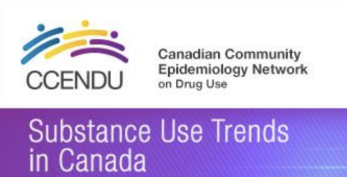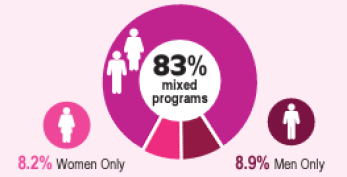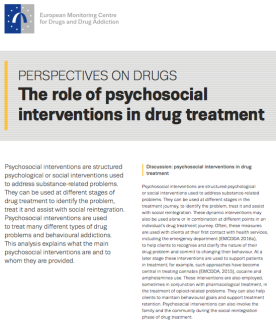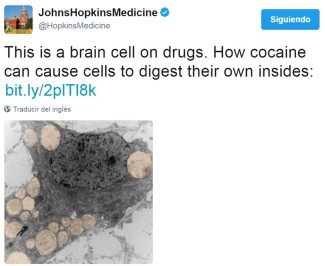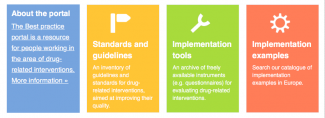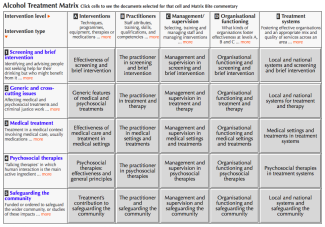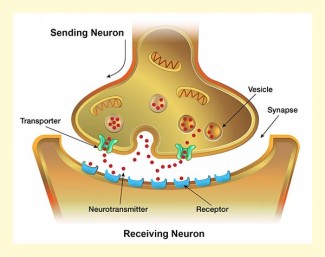Search
Treatment
Applying interventions designed to reduce and manage the symptoms of substance use disorders.
Now Available: European Facility Survey Questionnaire (EFSQ) Package
The European Facility Survey Questionnaire (EFSQ) can be used for data collection in any country by those looking to investigate facilities that provide interventions for drug users.
Its aim is to collect information on facilities in...
Aggression Linked to Substance Use
New Research published in the Journal of Clinical Psychiatry has found that people with intermittent explosive disorder (IED) – a condition with a significant genetic component characterised by regular outbursts of aggression, whether...
Effectiveness Bank Alcohol Treatment Matrix Row 4: The Talking Route to Recovery
The Talking Route to Recovery
Time to consolidate the lessons of last five instalments of the online course on alcohol treatment research. Every treatment involves direct or indirect human interaction, but this row is about therapies in...
What Is There to Know About Psychosocial Interventions in Drug Treatment?
Psychosocial interventions are psychological or social interventions used to tackle issues related to substance abuse and behavioural addictions. They can be employed to identify and treat problems, as well as to assist with user...
Global Smoking Rates on Decline Thanks to Demand-Reduction Measures
New research published in The Lancet Public Health suggests that global smoking rates have decreased by 2.5% following the introduction of the global tobacco control treaty. The treaty obligates the 180 countries committed to it to...
Can We ‘Switch Off’ Our Need to Drink Alcohol?
New research by scientists at The Scripps Research Institute (TSRI) may lead to the development of personalised treatments for alcohol dependence. The study evaluated how people’s responses in the brain differ to various therapeutic...
Cocaine Elicits Autophagic Cytotoxicity via a Nitric Oxide-GAPDH Signaling Cascade
Abstract
Cocaine exerts its behavioral stimulant effects by facilitating synaptic actions of neurotransmitters such as dopamine and serotonin. It is also neurotoxic and broadly cytotoxic, leading to overdose deaths. We demonstrate that the...
New Evidence in Mice That Cocaine Makes Brain Cells Cannibalize Themselves
Working with mice, researchers at Johns Hopkins have contributed significant new evidence to support the idea that high doses of cocaine kill brain cells by triggering overactive autophagy, a process in which cells literally digest their...
ISSUP Mexico 2017
EMCDDA Treatment Standards and Best Practice
Effectiveness Bank Matrix Bite: Psychosocial Therapies in the Treatment System
This is one of 25 cells in the Alcohol Treatment Matrix. The cell discusses key research relating to the roles of psychosocial therapies in local treatment systems. In particular, their role in creating a cost-effective mix of services...
Should Opioid Dependent Patients Receive Immediate Access to Medical Treatment?
New research supported by the National Institute on Drug Abuse (NIDA) has found through a comparison of treatment approaches for opioid dependence that, in an emergency setting, combining the medication buprenorphine with on-going care is...
Can Abstaining from Alcohol Help to Fight the Spread of HIV?
Studies have shown that alcohol may play a role in more that 13% of deaths resulting from infectious diseases, including HIV.
Evidence suggests that alcohol consumption negatively affects the fight against HIV primarily by:
- Increasing...
Could LSD Have a Role in New Therapeutic Treatments?
New research published in the journal Translational Psychiatry has found that LSD reduces activity in the region of the brain responsible for negative emotions such as fear.
The researchers call this the drug’s ‘de-frightening effect’ and...
Does Smoking Cigarettes Increase the Chance of Relapse into Illegal Substance Use?
Among people recovering from substance use disorders, those who smoke are more likely to relapse three years later compared to those who do not, according to new findings published in The Journal of Clinical Psychiatry.
Treatment for...
Organisational Influences on Psychosocial Therapies
Latest instalment of online course on alcohol treatment research. See if you agree with influential US researchers that “organizational climate underlies the entire process of innovation adoption”, appreciate the effect of high staff...
Drugs on the Brain: Substance Use and Neurotransmission
The National Institute on Drug Abuse (NIDA) has published an extended overview detailing the impact of certain drugs on brain functioning, as well as the most common experimental methods used in related research.
Neuroscientists primarily...
Minimum Alcohol Price to Be Rolled out across the UK?
A minimum price of 50p per unit of alcohol was approved by Members of Scottish Parliament (MSPs) in 2012. The decision faced numerous legal challenges from the drinks industry before Scottish courts ruled in its favour in October 2016. This...
Tweet2Quit: The Social Media Intervention Helping People to Quit Smoking
The social media quit-smoking intervention – Tweet2Quit – sends automated daily communications to private self-help groups, encouraging high-quality peer-to-peer discussions online. It is very low cost and has a potential global reach.
A...
The Comparative Effectiveness of Outpatient Treatment for Adolescent Substance Abuse: A Meta-Analysis
Multi-prong therapies centred on the family emerge as probably the most effective in this comprehensive and careful synthesis of the results of trials of non-residential programmes for substance using teenagers - but do the outcomes warrant...
Share the Knowledge: ISSUP members can post in the Knowledge Share – Sign in or become a member

